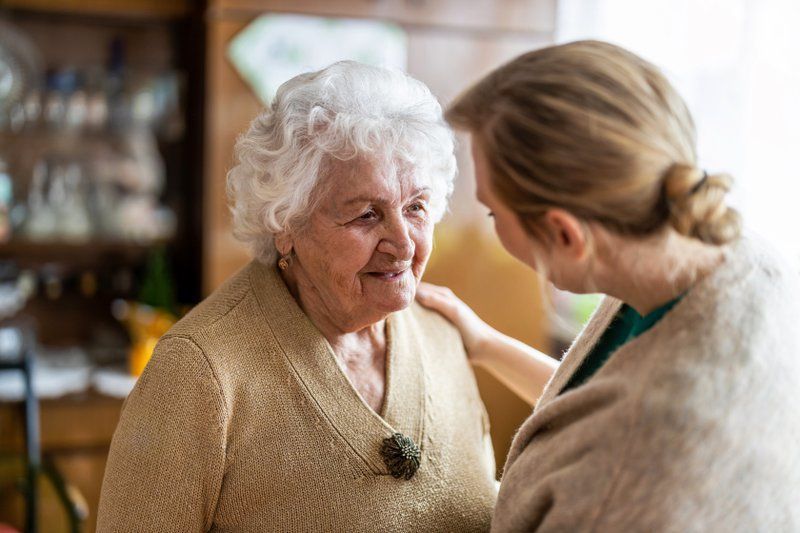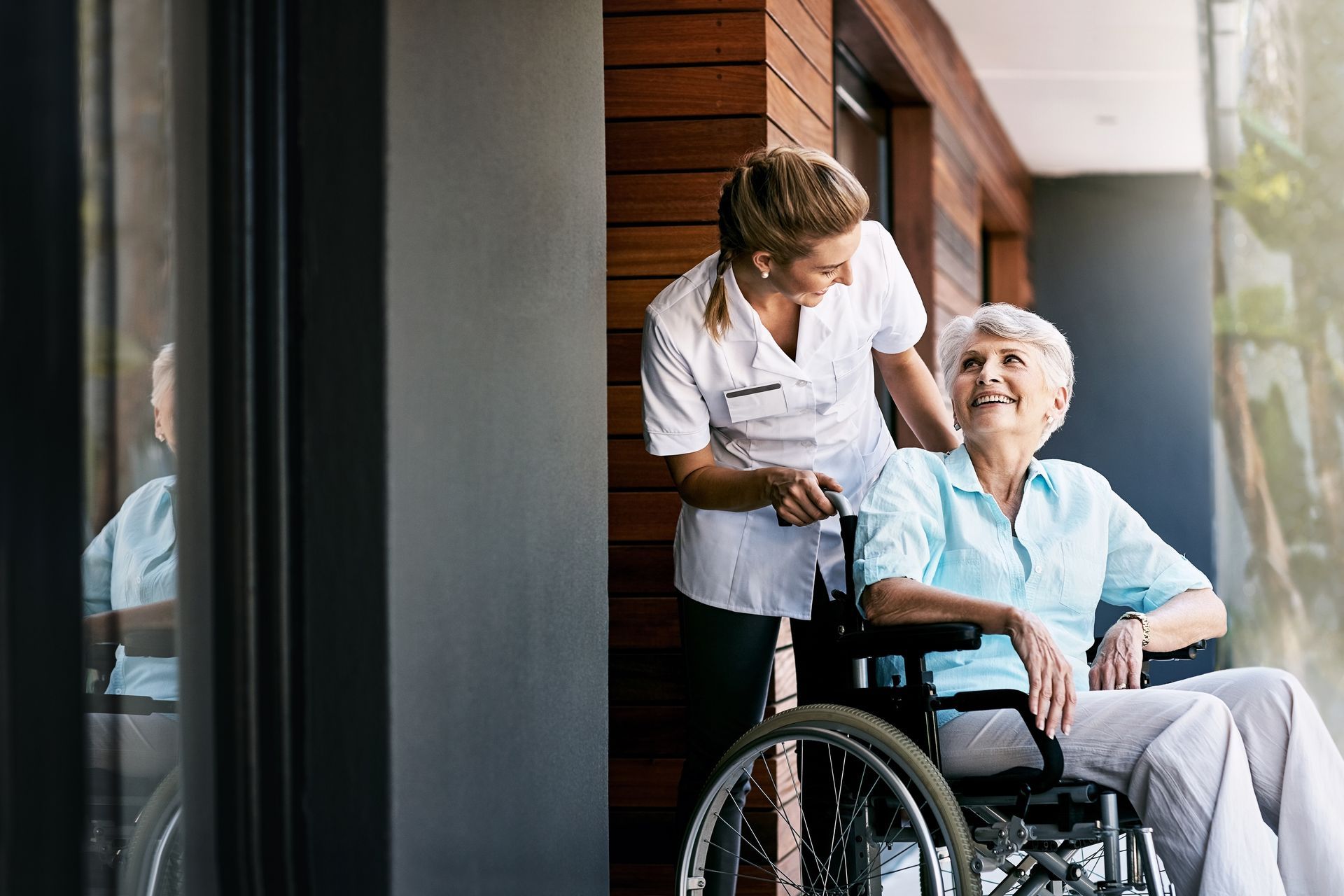BLOG
Caring for the Unseen: Redefining Quality of Life in Frontotemporal Dementia (FTD) Care
Frontotemporal Dementia (FTD) presents a complex set of challenges, characterized by behavioral changes, language difficulties, and executive function impairments. This form of dementia impacts individuals and their families profoundly, necessitating a reevaluation of traditional care practices. From innovative care models and purposeful engagement to empowering families and caregivers, this article aims to illuminate the potential for improving the lives of individuals with FTD through holistic and compassionate care.
Redefining Quality of Life in FTD Care
Frontotemporal Dementia (FTD) demands a reimagined approach to care, one that prioritizes the preservation of dignity, the promotion of independence, and the enhancement of overall well-being. To achieve these goals, evidence-based practices play a pivotal role. Tailored activities tailored to the individual's interests and capabilities can significantly improve their quality of life. Furthermore, environmental modifications within a supportive and familiar setting can create a sense of comfort and belonging, positively impacting the emotional and cognitive well-being of residents.

- Tailored Activities: Engaging residents in activities that resonate with their personal preferences and previous hobbies can provide a sense of purpose and joy. Whether it involves gardening, music therapy, or art classes, these activities play a crucial role in enhancing cognitive stimulation and fostering emotional connections within the community.
- Environmental Modifications: Creating an environment that supports the specific needs of individuals with FTD is essential for their well-being. This can include sensory-friendly spaces, calming color schemes, and familiar objects that evoke positive memories, promoting a sense of security and reducing anxiety.
In redefining quality of life in FTD care, these approaches aim to honor the individuality and unique experiences of residents while fostering a supportive and enriching environment.
Innovative Care Models for FTD Support
In the realm of FTD care, innovative models are tailored to address the distinctive needs of individuals, aiming to cultivate a supportive and familiar environment. Small, neighborhood clusters of homes serve as the foundation for a more personalized approach, fostering a sense of community and belonging among residents. Embracing communal living spaces within these clusters provides opportunities for social engagement and shared experiences, promoting a supportive and inclusive atmosphere.
- Small Home Model: By offering smaller, more intimate living arrangements, residents benefit from a greater sense of familiarity and security. This model allows for personalized attention and a greater focus on individual preferences and needs, enhancing the overall quality of care provided.
- Communal Living Spaces: Shared areas within the clusters encourage social interactions and meaningful connections among residents. These spaces not only facilitate engagement but also promote a sense of belonging and purpose, integral for individuals with FTD as they navigate their daily routines.
- Personalized Care Plans: Tailoring care plans to the specific requirements of each resident ensures that their unique needs are met effectively. From medication management to daily activities, personalized care plans are designed to support and enhance the well-being of individuals with FTD, promoting a sense of autonomy and agency.
These innovative care models for FTD support illustrate the commitment to creating an environment that fosters a sense of familiarity, purpose, and community, ultimately contributing to an improved quality of life for residents.
Enriching Lives Through Purposeful Engagement
In the context of Frontotemporal Dementia (FTD) care, purposeful engagement and meaningful activities play a pivotal role in promoting cognitive stimulation and emotional well-being for individuals. Personalized social interactions, such as one-on-one conversations and group activities, serve as opportunities to foster meaningful connections and reduce feelings of isolation. Additionally, family-style meals create a sense of normalcy and continuity, promoting social interaction and a feeling of belonging within the community.

- Personalized Social Interactions: Tailoring social interactions to align with the individual's preferences and comfort levels can lead to more meaningful and positive experiences. These interactions are designed to stimulate cognitive function and maintain emotional connections, contributing to an improved quality of life for residents.
- Family-Style Meals: Sharing meals in a communal setting fosters a sense of togetherness, encourages social interaction, and provides a comforting routine. This approach recognizes the importance of social engagement during meal times, promoting a supportive and inclusive atmosphere.
- Innovative Programs: Introducing innovative programs, such as art therapy, music therapy, and reminiscence activities, offers residents opportunities for creative expression, emotional release, and cognitive stimulation. These programs are designed to enhance overall well-being and provide outlets for self-expression and fulfillment.
By emphasizing purposeful engagement and meaningful activities, FTD care embodies a commitment to enriching the lives of residents by promoting cognitive stimulation, emotional well-being, and a sense of belonging within the community.
Empowering Families and Caregivers
Supporting families and caregivers of individuals with Frontotemporal Dementia (FTD) is integral to addressing the unique challenges they encounter. Providing access to specialized training equips families and caregivers with the knowledge and skills necessary to effectively support their loved ones. This training encompasses understanding the progression of FTD, communication strategies, and strategies for managing behavioral changes. Furthermore, emotional support and inclusive communication are essential components in empowering families, as they navigate the complexities of caring for a loved one with FTD.
- Specialized Training: Access to specialized training offers families and caregivers valuable insights into the specific needs and behaviors associated with FTD. Equipped with this knowledge, they can better understand and respond to the challenges presented by the condition, ultimately enhancing the care experience for the individual with FTD.
- Emotional Support: Providing emotional support to families and caregivers acknowledges the emotional toll of caring for a loved one with FTD. Empathetic support networks, counseling services, and access to mental health resources play a crucial role in sustaining the well-being of families and caregivers, ensuring they are equipped to provide the best possible care.
- Inclusive Communication: Effective communication strategies foster understanding and empathy, establishing a more harmonious environment for both individuals with FTD and their caregivers. Inclusive communication practices seek to validate the experiences of both parties, promoting a supportive and collaborative approach to care.
Empowering families and caregivers through comprehensive support services is fundamental in ensuring the well-being of both the individual with FTD and those providing care, fostering an environment of compassion, understanding, and effective support.
In embracing a new paradigm of Frontotemporal Dementia (FTD) care, it becomes evident that the shift towards holistic, person-centered care models is paramount in redefining the quality of life for individuals with FTD.
Through purposeful engagement, innovative care models, and comprehensive support for families and caregivers, a compassionate and supportive environment is cultivated. By prioritizing dignity, independence, and well-being, these transformative approaches pave the way for a more enriching and compassionate FTD care experience. For more information on innovative FTD care and support, we encourage readers to visit Assured Assisted Living.
Learn more about what sets us apart. Contact us today, or download our free Family Decision Toolkit guide for more information















